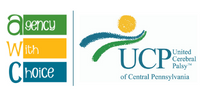

Participant Direction (also known as Self Direction) allows individuals to have more control over the supports they receive. Individuals can be the employer of the people who provide their participant-directed supports, or they can select a surrogate to take on the role of employer on their behalf.
When an individual chooses to self direct their services, they do so with the assistance of a Financial Management Service (FMS) organization, which handles some of the employer-related work, such as processing payments and maintaining tax records.
In order to be eligible, they must live in their own home or in the home of a family member or friend. Specific services must be authorized on the individual’s Individualized Service Plan (ISP) in order to qualify.
Below is a side-by-side model comparison that shows the differences between the participant driven model and other service models that are available to individuals with intellectual and developmental disabilities.
